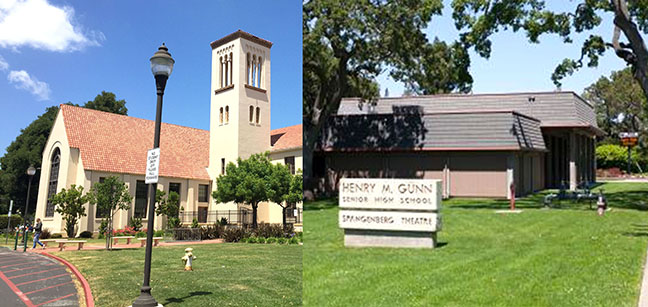
BY BRADEN CARTWRIGHT
Daily Post Staff Writer
Ethnic Studies is back on the table in Palo Alto after school board members asked to vote on making the controversial class a graduation requirement, board member Shana Segal said yesterday.
The school board was scheduled to vote on Ethnic Studies last night, but last week Superintendent Don Austin recommended tabling the proposal indefinitely because the state wouldn’t fund the class.
Since then, Segal said she has received “myriad requests from the community, as well as board members,” to put Ethnic Studies back on the agenda.
So the board will have a special meeting on Thursday with Ethnic Studies as the only topic, Segal said.
The discussion will reflect that Ethnic Studies is not mandated by the state, Segal said.
The state Legislature passed a law three years ago to mandate Ethnic Studies starting with the 2025–26 school year.
But Assembly Bill 101 said the requirement was “only upon an appropriation of funds by the Legislature,” and Gov. Gavin Newsom didn’t include funding in his budget proposed on Jan. 10.
Palo Alto has gone slower than neighboring districts by keeping Ethnic Studies as an elective.
The Sequoia Union High School District and the Mountain View-Los Altos High School District already mandate the class.
Jewish families have complained about schools teaching a biased and one-sided view of the conflict in Israel that has provoked antisemitic remarks, bullying and antagonism toward Jewish students.
Both districts have been sued by the Deborah Project, a pro-Israel law firm alleging the districts are withholding records related to Ethnic Studies curriculum.
Advocates for Ethnic Studies include parent Nicole Chiu-Wang, who ran unsuccessfully for Palo Alto school board in 2022 and 2024.
Chiu-Wang said yesterday that Ethnic Studies improves academic achievement of students from historically underrepresented groups and helps them understand their place in the world.
“Ethnic Studies centers the lived experiences and history of students who rarely see themselves represented in our history classes — limited to one paragraph or a few sentences at the end of each chapter as a crumb of acknowledgment,” Chiu-Wang said in an email.
Austin criticized the state’s handling of Ethnic Studies in his letter to the community last week.
“By framing Ethnic Studies as a high-stakes, one-semester requirement, the Legislature created a political flashpoint, with some viewing it as a magical solution and others committed to fighting against the course in general,” Austin said. “Both extremes undermine the true goal of the course: to foster insightful, well-guided discussions.”
As board president, Segal sets the agenda with Austin and board member Shounak Dharap, who is the board’s vice president.
Segal said yesterday that she and Dharap agreed with Austin’s recommendation to pull Ethnic Studies, and they agreed to put the item back on the agenda.
The other board members — Josh Salcman, Alison Kamhi and Rowena Chiu — were elected in November.

I wish this article had also quoted some of the many courageous students who passionately spoke about the need of Ethnic studies.
Using lack of funding as an excuse not to move ethnic studies forward makes little sense. This class won’t cost money since it’s not an extra elective like Multi Variable Calculus, but merely replacing part of a currently required history class.
As states, neighboring districts already have ethnic studies as a graduation requirement without funding.
Pausing ethnic studies under the guise of collecting more community feedback also doesn’t make sense. Teachers and staff are already well aware what some community members want changed and chose not to incorporate these changes.
Think about the slippery slope here. Do we really want a district where parents weigh in on the content of individual lessons? Moms for Liberty does this & actually sent out an email blast praising PAUSD’s decision to pause the course & had a rep at the board meeting last night.
Our new green board members need to understand that the job isn’t about making all the voices happy, the job is squarely about serving students.
I hope that at Thursday’s meeting, the board shows their trust in the thorough 2-year process (which included a successful pilot), their respect of our excellent teachers, and their commitment to improving the experiences of our most vulnerable students (which will benefit all of our students!) by staying the course and voting to make Ethnic Studies a graduation requirement.
“Chiu-Wang said yesterday that Ethnic Studies improves academic achievement of students from historically underrepresented groups and helps them understand their place in the world.” How? By turning students into future campus activists?
We all know the real purpose of ethnic studies is to promote race-based divisions, blame all problems on “whitey”, and support for redistribution of wealth, gun control, more government regulations, public schooling, and higher taxes.
Identity studies not only has no redeeming value, but will not help any student achieve a high-paying job as an engineer, accountant, lawyer, or doctor. It’s a one-way ticket to the unemployment line with a giant chip on your shoulder.